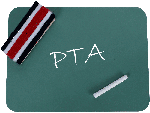News
Toward a New Parent-Teacher Association
Nov 09, 2008
 “Research confirms what common sense suggests: parents are central to the educational success of their children.” This conclusion comes from One Dream, Two Realities: Perspectives of Parents on America’s High School, by John M. Bridgeland, et al., from Civic Enterprises in association with Peter D. Hart Research Associates and the Bill & Melinda Gates Foundation.
“Research confirms what common sense suggests: parents are central to the educational success of their children.” This conclusion comes from One Dream, Two Realities: Perspectives of Parents on America’s High School, by John M. Bridgeland, et al., from Civic Enterprises in association with Peter D. Hart Research Associates and the Bill & Melinda Gates Foundation.
The study was based on a survey of 1,006 parents of current or recent high school students from urban, suburban, and rural areas of the country. There are currently 25 million parents who have children in high school. The survey categorized high schools as high performing or low performing based on the proportion of students from those schools who went on to college. This is probably a more defensible criterion today than in the past. A high school education alone is simply not adequate to prepare a student for the demands of a high-tech, knowledge-based, 21st century world.
Among the findings:
- Parents understand that this is a more demanding world than it was 20 years ago (61%). Parents with only a high school degree believe this to be true more often (71%) than do parents with a graduate degree (49%).
- Parents share high aspirations for their children. Again, African-American parents and Hispanic parents consider going to college very important (92% and 90%) compared to 78% of white parents.
- Parents know their involvement is important, those in low-performing schools (85%) even more than parents overall (80%).
- Parents in low-performing schools, not surprisingly, feel more left out of the process then parents in high-performing schools. They feel their children aren’t being challenged or properly prepared for college, and the schools are not doing a good job of communicating or involving the parents or are doing so only superficially;
- All parents want better access and participation in their children’s school lives than they currently have; they want earlier contact and more information during early high school years regarding what it will take to get their children into college; and they want a single point of contact at the school who will maintain close communication with them.
A comprehensive solution to increasing parental involvement must address this problem and must provide creative new methods to solve it. Parents must be encouraged, trained, engaged, and, yes, if necessary, required to be parents. Then the recommendations made by this study to create a truly cooperative environment involving students, teachers, parents, and school support personnel will have a chance of succeeding. And in those instances when proper parenting of a child is simply not in the cards—and there will be many such instances—society must be prepared to provide an alternative.
Side Note: When we were an elementary school librarian, we wrote a comprehensive K-6 curriculum for learning library skills, published it throughout the school, and sent it home, so students and parents understood what was expected. Every item in the curriculum included suggested parental activities to enhance the learning taking place in school. The published curriculum was a breath of fresh air for all who saw it, many of whom expressing surprise and gratitude at seeing and understanding for the first time the shape and process of a full-blown course curriculum. It was ultimately distributed to colleagues across the country. The learning environment, and just what goes on there, is often a great mystery to students and parents alike. Raising the veil on that mystery is a key component in acquiring the cooperation of all parties in this vital undertaking.
Copyright © 2008 All Together Now.